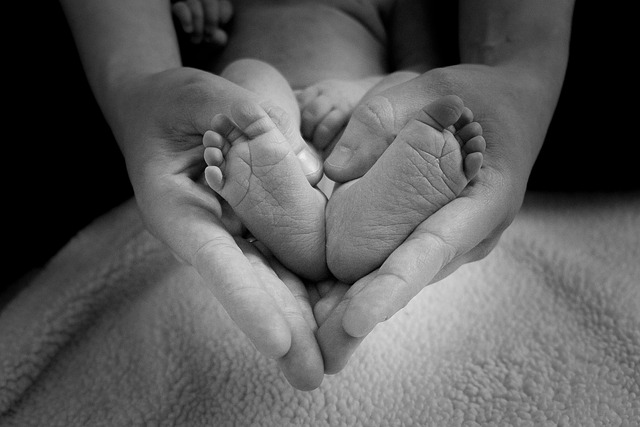Inside Iran’s 300 Drone Attack on Israel: What You Must Know

In the early hours of Sunday, Iran launched a drone against Israel on April 14 and sent shock waves in the region, raising concerns about the escalation of tensions and the possibility of further conflict. Understanding the importance of this unprecedented event and its impact on Israel is essential to grasp the complexity of the situation.
According to the Associated Press news agency, Israel’s chief military spokesman Daniel Hagari said that Iran’s Attack on Israel involved more than 120 ballistic missiles, 170 drones, and more than 30 cruise missiles.
What happened in Israel and when did it happen?
Iran launched a large-scale air strike on Israel. Two weeks ago, Iran suspected that Israel had carried out a strike on its consulate in Syria. This marks the first time in Iran’s history that it has directly attacked Israeli territory from Iranian territory. Iran called the attack a true commitment.
The attack began at around 8:00 p.m. GMT on Saturday. According to U.S. officials, it lasted for about five hours.
During the attack, explosions were heard in cities across Israel, including Tel Aviv. Explosions were also heard in Jerusalem, and air raid sirens sounded in more than 720 locations as Israeli forces tried to shoot down the projectiles.
According to the Associated Press news agency, Israel’s chief military spokesman Daniel Hagari said that Iran’s attack involved more than 120 ballistic missiles, 170 drones and more than 30 cruise missiles.
The Israeli military also said that the vast majority of projectiles were intercepted outside the country with the help of the United States, the United Kingdom and France. Jordan also shot down some missiles aimed at Israel while flying in Jordanian airspace.
The Israeli military added that “a small number of hits have been identified.” At a base in southern Israel, “infrastructure suffered minor damage.”
A seven-year-old girl was also seriously injured by missile debris, while other patients suffered minor injuries. Some were treated for anxiety.
U.S. Secretary of Defense Lloyd Austin said on Saturday that the United States also intercepted “dozens” of missiles and drones launched from Iraq, Syria and Yemen into Israel.
Iran’s drone arsenal
In recent years, Iran’s drone capabilities have developed significantly, enabling the country to deploy advanced unmanned aerial vehicles (UAVs) for various military purposes. These drones range from small reconnaissance aircraft to larger and more advanced models, capable of precision strikes with destructive effects.
Missiles deployed in attack
In addition to drones, Iran also deployed a series of missiles during its attack on Israel. The size, range and payloads of these missiles vary, posing a major threat to regional security and stability. Understanding the capabilities and range of Iranian missiles is essential to assess the level of threat posed by Iran’s military arsenal
Objective and damage assessment
The main targets of Iranian drone and missile attacks on Israel include military installations, strategic infrastructure, and civilian population centers. The extent of the damage caused to Israeli territory and the casualties caused highlight the seriousness of the situation and the need for a rapid and effective response.
Where did the attack take place?
During the attack, the Israeli military ordered residents of the northern part of the Israeli-occupied Golan Heights-near the border between Syria and Lebanon-and the southern cities of Nevatim, Dimona, and Eilat to stay near air-raid shelters.
Nevatim is home to an Israeli air base, and Dimona has a nuclear reactor on the outskirts. Eilat is Israel’s southern Red Sea port. Due to repeated attacks by Yemen’s Houthi rebels on ships passing through the channel, the operation of the port has declined sharply.
Why did Iran attack Israel?
The Iranian attack was retaliation for a suspected Israeli strike that killed Iranian military commander Major General Mohammad Reza Zahed in Damascus on April 1. He was killed along with six other Iranian nationals, including another general. At least six Syrian citizens were also killed.
“It seems that Iran’s leaders are determined to take action, but they are also [being] seen to take action,” David Des Roches, an associate professor at the National Defense University in Washington, D.C., told Al Jazeera.
“What this shows to me is that there are considerations of pride and prestige from strategic and tactical effectiveness, which may indicate a more dangerous era than we thought,” he added.
The Iranian-backed Lebanese armed group Hizbullah and the Israeli military have been carrying out attacks on the Lebanon-Israel border since October 8, the day after the Hamas-led attack on southern Israel and Israel’s brutal retaliation against the besieged Gaza Strip. Since then, more than 330 people in Lebanon have been killed in Israeli attacks, including at least 66 civilians. The Hizbullah attack killed at least 18 people, 12 soldiers and 6 civilians on the Israeli side.
On Saturday, Iranian state media announced that the country’s armed forces had seized a container ship linked to Israel near the Strait of Hormuz.
Israel’s repones
In response to the attack, Israel implemented a series of defensive measures aimed at eliminating the threat posed by Iranian drones and missiles. These measures include the deployment of air defense systems, air strikes on Iranian targets, and strengthening border security to prevent future incursions.
What will be the next step for Iran, Israel, and the region?
Al Jazeera’s Rory Challands said while reporting from occupied East Jerusalem: “Analysts over the past few hours have been saying that Iran’s attacks seem to have been carefully calibrated to illustrate the problem, but not to cause too much damage, so that the situation escalates into a broader conflict.
“The Israeli war cabinet has been authorized to respond to Iran in some way,” said Challands.
According to Al Jazeera’s diplomatic editor James Bays, the United States seems to have “had some contact with Iran before this attack.” Some of them are likely to have been arranged to a certain extent.”
“The Biden administration, in the end, it has a lot of tools, because the United States is the main supplier of Israeli funds and weapons. President Biden has not taken strong action on the Gaza war so far, but remember the stakes here. Because if we do have a full-scale war between Iran and Israel, it will lead to chaos in the region and chaos outside the Middle East,” Bass said.
“Americans try to praise Israel, but behind the scenes, I believe in the Biden administration……I am not happy at all about the attack on the Iranian consulate in Damascus, because it knows that Iran really has no choice but to propose some kind of response,” He said.

The world’s reaction to Iran’s retaliation against Israel
The air strike has attracted condemnation from Israel’s allies who warned that it may escalate further in the Middle East.
U.S. President Joe Biden has made it clear that the United States will not participate in any offensive actions against Iran, according to a senior government official. But they reiterated their support for Israel.
“We do not seek a conflict with Iran, but we will not hesitate to take action to protect our troops and support Israel’s defense,” U.S. Secretary of Defense Austin said.
The United Nations Security Council (UNSC) is also expected to hold an emergency meeting at 4pm New York Time (20:00 GMT) on Sunday, the current president of the Security Council Malta said. Gilad Erdan, the Permanent Representative of Israel to the United Nations, called the Iranian attack a “serious and dangerous escalation.”
The Ministry of Foreign Affairs of Saudi Arabia expressed concern about the “military escalation” in the region and called on all parties to exercise restraint.
China also stated that it is deeply concerned about the escalation, adding that it is “an overflow of the conflict in Gaza” and that the ceasefire should be implemented without delay.
India also expressed concern and called for “immediate de-escalation, restraint, [and] withdrawal from violence and return to the path of democracy.””The Ministry of Foreign Affairs also said that the embassy in the region maintains close contact with the Indian community.
The Group of Seven (G7) will hold a video conference on Sunday. Italian Prime Minister Giorgia Meloni, who currently holds the rotating chairmanship of the Group of Seven, said on Twitter: “We are strongly concerned about further instability in the region and continue to work hard to avoid it.”
United Nations
UN Secretary-General Antonio Guterres condemned the “serious escalation”.
“I am deeply shocked by the real danger of a devastating escalation in the entire region,” he added, calling on all parties to “avoid any actions that may lead to a major military confrontation on multiple fronts in the Middle East.”
European Union
European Commission President Ursula von der Leyen called on Iran to “immediately stop” the attack.
“All actors must now avoid further escalation and work to restore stability to the region,” she said in a message on X.
NATO
NATO condemned the attack as an “escalation” of regional instability and urged all parties to exercise restraint.
“We condemn Iran’s escalation overnight, call for restraint, and are closely following developments. It is essential that the conflict in the Middle East does not get out of control,” said spokesperson Farah Dakhlallah.
The G7
The leaders of the G7 countries condemned Iran’s attack on Israel and called on all parties to “exercise restraint.”
“We unanimously condemn Iran’s unprecedented attack on Israel,” European Council President Charles Michel wrote on Twitter after the video talks.
“We will continue to make every effort to work in the direction of downgrade. Ending the Gaza crisis as soon as possible, especially through an immediate ceasefire, will have an impact.”
Gulf Cooperation Council
Jassem al Bedaiwi, Secretary-General of the Gulf Cooperation Council, urged all parties concerned to exercise restraint and prevent any further escalation that threatens the stability of the region.
Afghanistan
Afghanistan called Iran’s retaliatory strikes a “legitimate defense.””
The Ministry of Foreign Affairs said in a statement that Israel’s attack on the Iranian consulate in Damascus on April 1 “violated all diplomatic norms and international law.””
It added that since October 7, Tel Aviv has continued to commit “genocide” and killed more than 33,000 civilians in Gaza.
It tries to divert global attention from its “crimes” by “invading the space of other countries and spreading insecurity,” it insists.
Albania
The Prime Minister of Albania, Eddie Rama, has stated that the Iranian attack poses an irreversible threat to the stability of the region.
Rama added that Albania stands in solidarity with the Israeli people and “fully endorses the efforts of our partners to ease the situation.”
Austria
Austrian Prime Minister Karl Nehammer expressed a “firm commitment” to Israel’s security. “Iran’s attack on Israel will be condemned in the strongest possible terms,” Nehammer said. Nehammer also called on Iran to immediately cease hostile actions.
Azerbaijan
The Ministry of Foreign Affairs of Azerbaijan expressed its “deep concern” about the rising tensions. The Ministry called on all parties to “exercise restraint and avoid dangerous escalation, which will further undermine the stability of the situation in the Middle East.””
Bahrain
The Ministry of Foreign Affairs of Bahrain called for “commitment to de-escalation, restraint and avoidance of escalation to protect the people of the region from the consequences of this dangerous escalation.””
Belarus
The Ministry of Foreign Affairs of Belarus is also deeply concerned about the situation.
The Ministry called on the international community and international organizations to “take measures” and “consolidate efforts to stabilize the situation urgently.””
Belgium
Belgian Prime Minister Alexander De Croo said that Iran’s direct attack on Israel is a “dangerous escalation of violence” in the region.
United Kingdom
British Prime Minister Rishi Sunak condemned the “reckless” strike, saying it “has the potential to increase tensions and undermine the stability of the region.””
“Iran has once again stated that it intends to sow chaos in its own backyard.”









